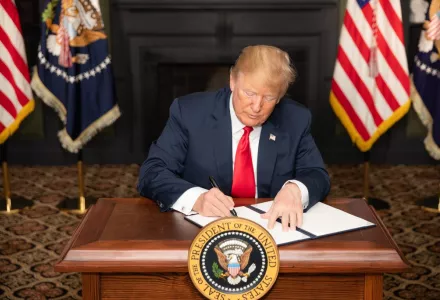Turning Paper Screws: The Effectiveness of Economic Sanctions in International Security
Speaker: Ariel Petrovics, Stanton Nuclear Security Postdoctoral Fellow, International Security Program/Project on Managing the Atom
Economic sanctions are one of the most common coercive tools of foreign policy, used regularly in an effort to change target state behavior. Yet despite their versatility and prevalence in international relations, sanctions are at best an unreliable tool of foreign policy. Indeed, many of the most important and publicized sanction attempts have failed to produce any desired change in the target. Existing literature on the effectiveness of sanctions has largely focused on whether or not sanctions eventually succeed, but this overlooks the arguable more policy relevant questions of when and under what conditions sanctions are effective tools of statecraft. The speaker's research finds that sanctions with the greatest implications for international security — such as those that combat nuclear proliferation or foreign military aggression — fail even more catastrophically than their less salient counterparts.
Everyone is welcome to join us online via Zoom! Click here. Meeting ID number: 810311271




